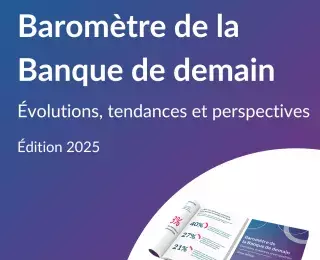What are the differences in French Accounting vs. UK Accounting ?

The differences between French and UK based accounting cover several areas, from the necessary application of financial reporting, the procedures of book keeping and even the methodology to which accounting is practised.
GAAP and PCG
The UK follows a rules based practice focused around the Generally Accepted Accounting Principles (GAAP) whilst French accounting utilises the ‘PCG’ (Plan Comptable Général) and the International Financial Reporting Standards (IFRS) for the listed French company. Both UK GAAP and IFRS are made of several chapters dealing with different accounting practices. GAAP has chapter named FRS, whilst IFRS chapters are addressed IAS, with each chapter holding a number of paragraphs for different laws, rules or statements.
One of the issues in which these accounting principles differ is around Income Taxes such as the IFRS basing deferred tax, an amount of tax payable in future periods, on a temporary difference to the cost of an asset or liability whilst with GAAP deferred tax is typically considered as a timing difference between books. Whilst both IFRS and GAAP require tax liabilities to be recognised in full, GAAP holds significantly stricter criteria as to the recognition of deferred tax assets, under GAAP this deferred tax is allowed to be discounted, a principle not permitted under IFRS regulations. Similarly the manner in which an asset or liability is settled is taken into accounting under IFRS, yet under GAAP regulations is irrelevant. This allows UK businesses a much wider, freer choice in how assets and liabilities are represented between time periods. French accounting however have more choices on the timings of this tax.
The specific treatment of Employee Benefits
The two methodologies also tackle Employee Benefits differently, GAAP references FRS 17, whilst IFRS utilises IAS 19. Both notice the need to have Employee Benefits valued, however each do so in slightly different ways. French Accounting covers all benefits (excluding share-based payments) as Employee Benefits. Whilst GAAP depends on the type of benefit as to how it needs to be calculated for taxation purposes. However GAAP has no specific guidance for typical benefits treating these as operating expenses and thus being removed as part of Gross Profit of the organisation providing often a lower value at Gross than the French companies (this is however often remedied at Net Profit when all expenses are taken into account for both countries). There are also differences in the frequency and techniques used for valuating Employee Benefits with GAAP requiring a full actuarial valuations by a professionally qualified actuary which must be obtained at least every three years, though this is encouraged in French businesses it is not a necessity. Secondly the accounting period in which benefits are presented is different between the UK and France with the UK having all gains being recognised in the STRGL (Statement of Recognised Gains and Losses) in the period in which they arise, again as we witnessed under deferred tax, IFRS have a much freer choice on timings, as long as they are within 12 months of the original accounting period.
The Closing Period and Net Income
It is not just employees who benefit from the differences in accounting between the two countries. Within the business there are also several key differences to accounting practices between GAAP and IFRS. Whilst Revenue Recognition, the determination of the accounting period and amount of which revenues and expenses are recognised, under both IAS 18 and FRS 5 it is required that revenue be measured at the fair value of the asset or liability, after deducting amounts owed to third parties. The scope for GAAP is much narrower and addresses only the supply of goods and services to customers, whilst IFRS also includes the gaining of interest from an asset, as well as royalties and dividends. Similarly recognition of revenue from the sale of goods under GAAP is less prescriptive, having the revenue recognised when the entity has the right to consideration. However under IFRS there is a strict set of criteria that a sale leading to revenue must adhere to before being recognised.
There is also a difference in the recognition of revenue from Interest, Royalties and Dividends. With interest under IFRS being recognised using the effective-interest method, an accounting practice used for discounting bonds, whilst GAAP typically recognises interest at a constant return on the value of the asset. Royalties under IFRS are recognised under an accruals basis. GAAP provides no specific guidance on the recognition of royalties, and thus are typically are therefore recorded as they are incurred. GAAP also recognises Dividends as an income when there is a right to consideration, whilst IFRS recognises Dividends when the shareholders’ right to receive payment is established.
As we can see though there are many similarities between the accounting practices in France and the UK, however within those similar fields there are several differences, with French Accounting typically being more focused around principles whilst the UK has more solid rulings.





